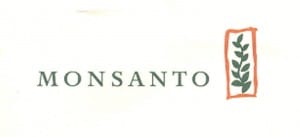St. Louis Post Dispatch
By Georgina Gustin
 A coalition of farmers is asking federal regulators to further scrutinize Monsanto Co.’s new soybean and cotton offerings, saying they could pose environmental threats to nearby crops.
A coalition of farmers is asking federal regulators to further scrutinize Monsanto Co.’s new soybean and cotton offerings, saying they could pose environmental threats to nearby crops.
The Indiana-based Save our Crops Coalition, a group of farmers who grow conventional and organic crops, filed a comment with the U.S. Department of Agriculture this week, asking the department to expand its review of soybeans and cotton that Monsanto is developing and are currently awaiting federal approval.
The company filed its own comment, late Wednesday, asking the agency to suspend its review altogether, saying the agency doesn’t have authority over the issue. The additional review, the company said, “would further delay introduction of important products to the market, ultimately harming farmers and the agricultural economy.”
Monsanto has been working to genetically modify soybeans and cotton to make them resistant to dicamba, a decades-old herbicide known for being especially volatile and prone to drift into “non-target” fields.
The company, along with its competitors, is scrambling to develop new herbicide formulations and crops to overcome growing resistance to glyphosate, a herbicide developed by Monsanto and sold as Roundup.
Roundup Ready, or glyphosate-tolerant, crops — which are genetically engineered to withstand applications of Roundup — have become ubiquitous on American farmland, accounting for the vast majority of corn and soy grown in the country. But in recent years, as farmers have increasingly relied on the Roundup Ready system, weeds have evolved to survive glyphosate.
The new soybeans and cotton, designed to survive applications of dicamba, are Monsanto’s answer to the problem — and an important addition to its product lineup.
Earlier this year, the Save our Crops Coalition successfully petitioned USDA in asking for a more stringent review of the dicamba-tolerant crops, as well as those designed to tolerate another older herbicide, 2,4-D, being developed by Dow Chemical Co.
The department had planned to perform an environmental assessment, but the coalition’s petition forced the department to conduct a more extensive environmental impact statement.
The coalition maintains that dicamba, “because of its potential to drift and volatize, has proven to be one of American’s most dangerous herbicides for non-target plant damage.” In other words, because dicamba can easily move on the wind, and because evaporation allows it to travel, it can cause damage to nearby crops.
Late last year, after conversations with the coalition, Dow agreed to include directions on its product labels that would legally require farmers to take certain cautionary measures when spraying 2,4-D, especially in areas with sensitive crops.
“Our hope is that the agency takes a look at the problem that the current formulation is going to bring and find a way for growers to use it correctly,” said Steve Smith, a tomato grower from Indiana and the coalition’s chairman, referring to dicamba. “Dow found a way of doing it, and Monsanto should do no less.”
Monsanto has said that its dicamba-tolerant crops could be on the market as early as next year, depending on the regulatory time line. The company says its new formulations of dicamba are less volatile and prone to drift than the old ones.
Many weed scientists say that farmers are desperately in need of a new tool in their fight against weeds but caution against the overuse that resulted in glyphosate-resistant weeds.
“If we use this (dicamba) system as we have the other, this will become resistant, too,” said Aaron Hager, a weed scientist at the University of Illinois. “If the mindset of the end-user is that this will fix the problem, that will more than likely reduce the effectiveness of the product. We have no evidence whatsoever that resistance would not evolve to dicamba.”
Georgina Gustin covers agriculture and food policy. Follow her on Twitter at georgina_gustin

